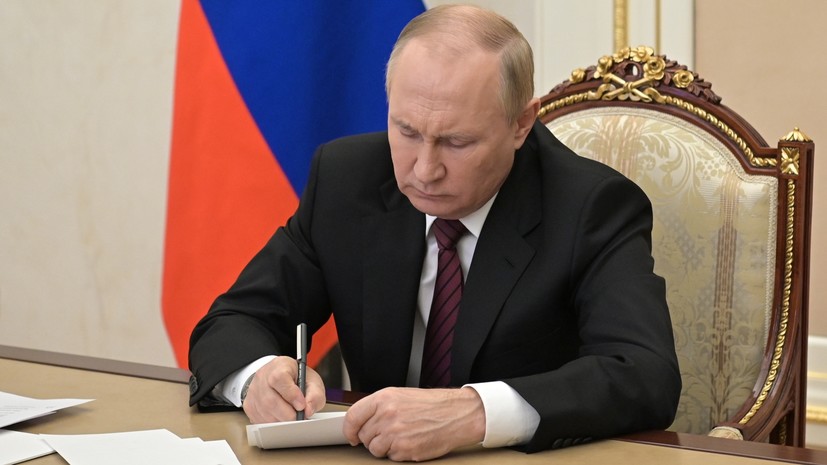Vladimir Putin signed a law banning the services of surrogate mothers for foreigners, as well as specifying the categories of Russians who can use this service.
According to the document, only married citizens of Russia or a single woman with Russian citizenship at the time of application, who, due to medical reasons, cannot give birth to a child, can use the services of surrogate mothers.
Citizenship must be held by one spouse or both.
The ban will not affect couples in which a Russian citizen is in a registered marriage with a foreigner.
A couple applying for the services of a surrogate mother in case of dissolution of their marriage can be recorded as the child's parents only with the consent of the woman who gave birth to him.
With the same condition, spouses may be registered as the child's parents in cases where one of them has died or their citizenship has been terminated.
In addition, in order to be recognized in the status of parents by the consent of the woman who gave birth to the child, it is required to establish that the marriage concluded by the spouses was not fictitiously formalized in order to apply for the service of surrogate motherhood without the purpose of creating a family.
Also on russian.rt.com “Do everything to protect children”: Volodin announced a ban on surrogacy for foreigners in Russia
“The court recognizes for a spouse whose rights are violated by the conclusion of such a marriage (a bona fide spouse) the right to be recorded as the parent of a child,” the document says.
It is also specified that a child born by a surrogate mother in Russia acquires Russian citizenship by birth.
"Surrogacy" for export "- the slave trade"
The explanatory note to the document noted that during the period of restrictions on movement between states associated with the COVID-19 pandemic, the investigating authorities again received a number of reports of staying in Russia without parents and without proper supervision and care of babies born by surrogate mothers.
We are talking about a number of cases, including those related to their death, as well as incidents in which there were signs of human trafficking.
At the same time, the accompanying note emphasized that in the Russian Federation, children are the most important priority of state policy and are under the protection of the state.
As the authors of the document noted, the main task of the Russian state is to guarantee the protection of the future of the country and its children from external and internal threats.
It is also emphasized that the number of identified cases of crimes against children born by surrogate mothers in Russia seems to be conclusive and justified for the introduction of a complete ban for foreign citizens and stateless persons on access to such services in Russia.
It is emphasized that the adoption of the bill will become a reliable basis for the successful solution of the tasks that the state faces in the field of protecting and guaranteeing the rights of children.
On December 14, the document was considered by the Federation Council.
One of its authors, Margarita Pavlova, a member of the Federation Council Committee on Defense and Security, said that she considers taking children abroad not only a matter of family policy or health care, but also a matter of national security.
According to her, “surrogacy “for export” is pure slave trade,” since Russia did not have mechanisms to track the fate of these children.
In turn, the State Duma adopted the law in the second and third readings on December 8.
As the speaker of the lower house of the Russian parliament Vyacheslav Volodin said shortly after the adoption of the document, this decision will prevent the trafficking of Russian children, as well as protect them from situations where they fall into same-sex couples or become victims of crimes, including sales for organs.

